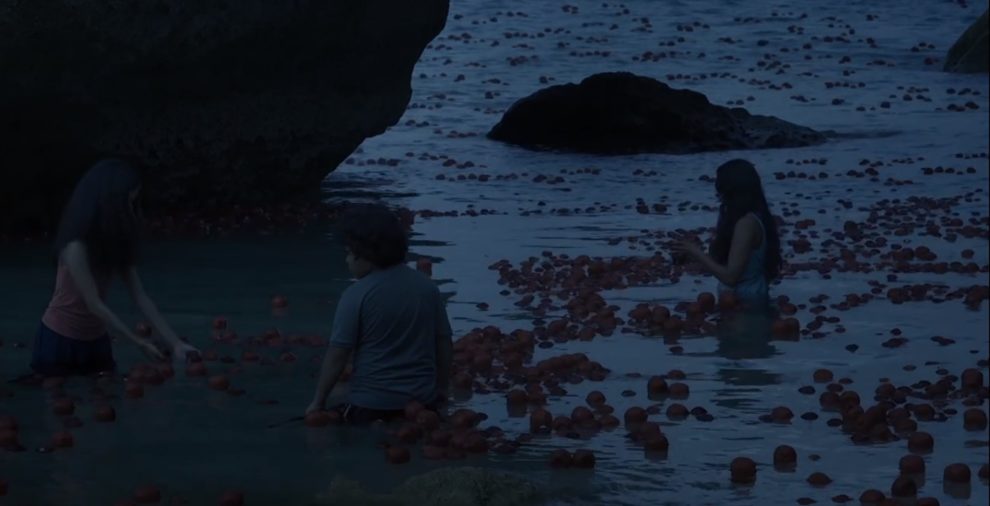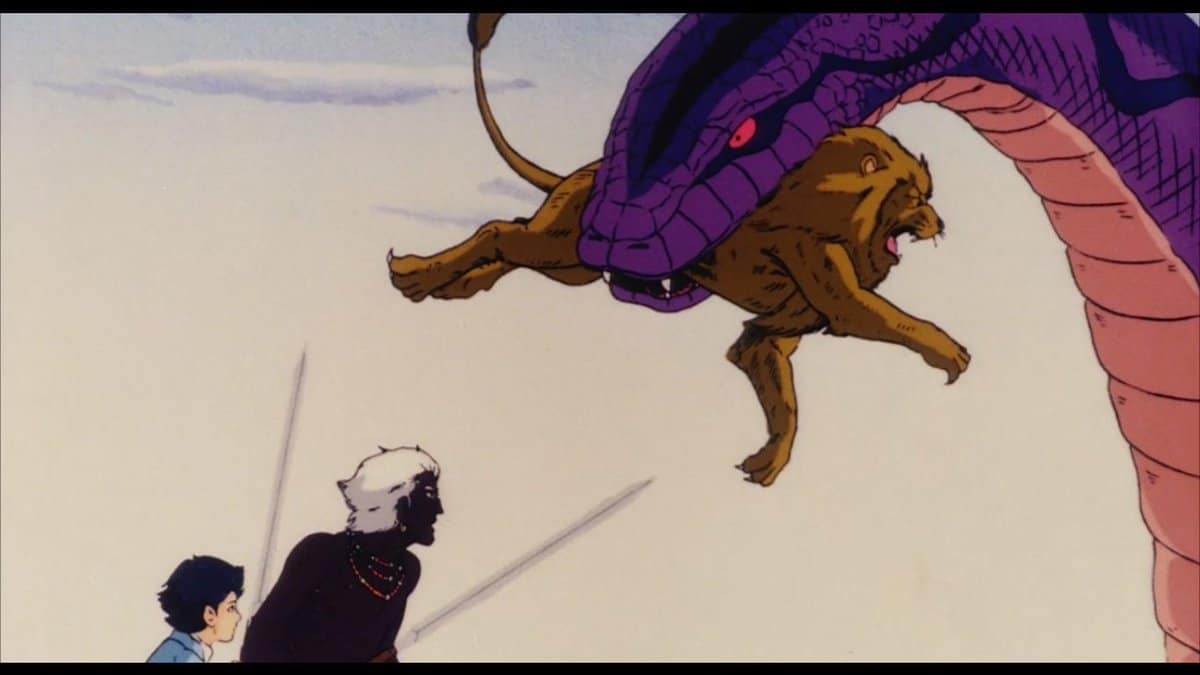As three siblings are waiting for their father to come back from his fishing trip, their hope starts to wither away. After ninety days, they will have to perform a traditional burial ceremony. While the eldest daughter is getting used to her new role as the head of the family, the village is haunted by a mysterious plague – hundreds of apples appear by the shore, glistening red dots in the seawater. (Official)
“Sea Serpent” Screened at Five Flavours Asian Film Festival

The sea gives as much as it takes; it can be a provider that can quickly turn on those that rely on it. This odd relationship acts as a backdrop to an already difficult time in one's life, the transition into adulthood. Exploring both loss within a family, and the new responsibilities put on a young family, Joseph Laban gracefully navigates through turbulent times in a small seaside town.
These themes are explored through a meticulous visual approach that gives the film an almost ethereal flow, speaking well to the concept of mysticism that is played out in the narrative and the title itself (Baconaua being a legendary sea creature that drags people into the depths). This flow also compliments the coming of age narrative that can put emphasis on the more simple of interactions that come to define youth. Consequently, this also adds a layer of tragedy to the young family who have to use some of their innocence to redefine family roles to compensate for the loss of a parent. Overall, Laban does a wonderful job of approaching his subjects with a sensitivity that reflects the predicament they find themselves in.
The narrative itself follows suite as it slowly unravels the problems facing the young family. However, there are some additional story elements that explore the morality of the people and different perspectives of island life based on age. The flooding of shores with apples works as both a good and bad omen, depending on which residence is looking at it. Additionally, there is a manhunt for an injured smuggler which sees a young boy take it upon himself to try to protect him while the rest of the village curses the very existence of an outsider. With the latter instance resting as a sort of moral gray area, it still contrasts the young youths desire to help as a way to deal with his own loss and events he perceives as ill omens.
Unfortunately, many of the creative choices made do mar the overall experience, with the slower pace working to establish a certain atmosphere but also can make the film seem tedious at points. This is further reflected in the script which does not introduce a key conflict until the later portion of the film in the story of the young Chinese smuggler. Perhaps the biggest error seems to come via post production and using an uncomplimentary tint on the movie. Dominated by a dark gray/blue tint, the island rests in a constant state of dreariness and night time scenes become hard to navigate. Tragically, this choice muddies an otherwise exemplary approach towards visual storytelling.
Other aspects of the production remain complimentary, with a great sound design to accompany the atmosphere and great location work to showcase the various nooks of the small village. Additionally, the young cast approach their parts with maturity that ensures the audience will stay engaged.
Ultimately, “Baconaua (Sea Serpent)” is a meditative exploration on loss within a remote community that is certain to catch the intrigue of many. While certain creative choices do let down the overall production, there is still plenty of positive to get swept away in.















